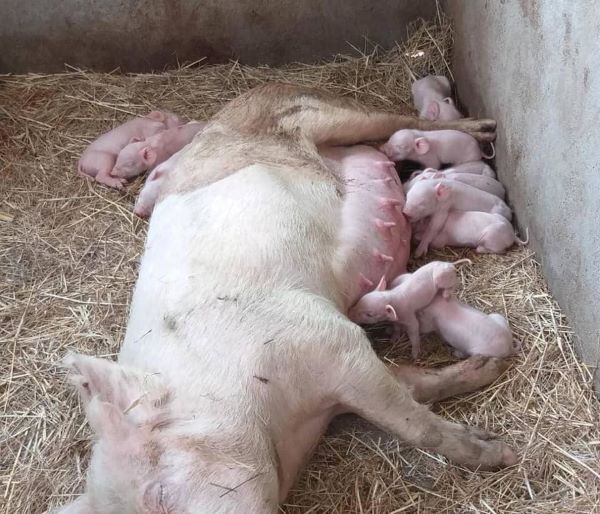By Lawrence Paganga
Nine District Pig Producer Associations (DPPAs) have been established in the rural districts of Mashonaland East and Mashonaland West provinces.
The associations were created with the support of several key stakeholders, including the Pig Industry Board (PIB), Agritex, Department of Veterinary Services, the ministries of Women’s Affairs and Youth, and rural district councils.
The associations aim at driving the commercialisation for small and medium pork producers in rural communities.
“The farmers greatly appreciated the formation of the District Pig Producer Associations which will in turn affiliate to the provincial Pig Producer Business Syndicates, which are vehicles for driving to commercialisation for small and medium pork producers,” said George Mudanga of Braford Farm in Mashonaland West.
In Mashonaland West, the rural districts of Chegutu, Mhondoro Ngezi, Zvimba, and Makonde now have established producers’ associations, while in Mashonaland East, the districts Marondera, Seke, Goromonzi, and Murewa are benefitting from the scheme.
The Mashonaland East production corridor is supported by Shamiso Farms and line government line ministries.
The pork producers’ district associations will also be avenues for farmers to address various challenges affecting the competitiveness of small and medium-scale producers in value chain through collective action from input supply to marketing to increase production and marketing efficiencies.
The farmers receive training on commodity leadership, governance skills, and conflict resolution.
Before the setting up of the DPPAs, it was noted the rural pork farmers had limited knowledge of financial services and products on offer, including requirements and servicing of loans.
The farmers also lacked experience in negotiating for tailor-made pig enterprise financing packages.
However, the farmers are now using a Blended Financing Approach focusing on multiple financing arrangements including loans from financial institutions.
Multiple stakeholder dialogue platforms have also been convened in the participating districts to increase awareness of the available products and possible solutions to address the challenges facing the farmers.
Committee members are now working on constitution development, mobilising groups to initiate collective action activities and reduce transaction costs during production and marketing, and creating private sector engagements.
The committees, with the support from private integrators and other value chain partners, will guide farmers towards improving the production, productivity, and profitability of their business enterprises to realise more profit.
Business Management Units (BMUs) will also be formed to support syndicate value chain business activities through lowering costs on input supply, including feed, veterinary drugs, and vaccines, transport and logistics, and value addition and processing.









